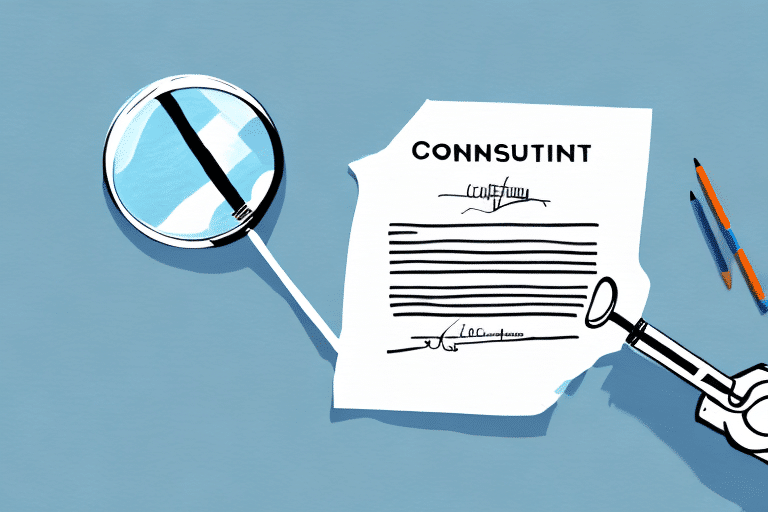Understanding the Importance of a Good Carrier Contract
Before diving into the specifics of carrier contracts, it's crucial to recognize why a robust and fair agreement is essential for your growing business. A well-crafted carrier contract safeguards your interests, minimizing risks such as delays, damages, or disputes with carriers. Additionally, it can help secure competitive pricing and superior service levels, streamline your operations, and ensure timely and condition-appropriate deliveries.
Choosing the Right Carrier for Your Business
Evaluating Carrier Reputation and Reliability
Selecting the right carrier begins with thorough research into their reputation and reliability. Look for carriers with positive reviews, strong safety records, and compliance with industry regulations. Websites like the Federal Motor Carrier Safety Administration (FMCSA) provide valuable insights into carrier safety and compliance.
Assessing Technological Capabilities
In today's digital age, technology plays a pivotal role in logistics. Choose carriers that offer advanced tracking systems, real-time visibility, and robust communication tools. Features such as mobile apps, online portals, and automated notifications can significantly enhance your supply chain management.
Customer Service and Support
Exceptional customer service is a hallmark of a reliable carrier. Ensure that the carrier provides dedicated support teams, 24/7 assistance, and has a track record of addressing customer concerns promptly and effectively.
Negotiating Favorable Contract Terms
Preparation and Research
Effective negotiations start with comprehensive preparation. Understand the current market rates and industry standards to establish a benchmark for your negotiations. Resources like the U.S. Department of Transportation offer valuable data and reports that can inform your negotiation strategy.
Transparency and Communication
Maintain clear and transparent communication with your carrier. Clearly articulate your expectations, requirements, and limitations to foster a mutually beneficial agreement. Transparency helps in building trust and facilitates smoother negotiations.
Including Add-ons and Extras
Don't hesitate to request additional benefits such as complimentary insurance, expedited shipping options, or volume discounts. These add-ons can provide significant value and enhance the overall effectiveness of your carrier contract.
Essential Clauses in Carrier Contracts
Insurance and Liability
A comprehensive insurance and liability clause is fundamental. It delineates the carrier's responsibilities in case of cargo damage, loss, or delays. Ensure that the coverage levels meet your business needs and comply with industry standards.
Force Majeure
The force majeure clause outlines scenarios where the carrier is not held liable for delays or failures due to uncontrollable events like natural disasters, strikes, or governmental actions. It's essential to review this clause to ensure it is not overly broad and maintains the carrier's accountability.
Service Level Agreements (SLAs)
SLAs define the expected service standards and performance metrics, such as transit times, on-time delivery rates, and cargo safety. Regularly negotiating and monitoring SLAs ensures that the carrier consistently meets your business requirements.
Dispute Resolution
Including a clear dispute resolution mechanism is vital. Whether through mediation, arbitration, or litigation, the clause should outline the procedures and remedies available in case of disagreements or contract breaches. This clarity helps in resolving conflicts efficiently and cost-effectively.
Ensuring Fair and Transparent Pricing
Pricing Structures and Discounts
Verify that the pricing structure is transparent and aligns with your budgetary constraints. Explore options for volume discounts, fuel surcharges, and accessorial charges that may impact transportation costs. Regularly reviewing pricing ensures competitiveness and financial viability.
Avoiding Hidden Fees
Hidden fees such as detention charges, accessorial fees, or unexpected surcharges can erode your budget. Carefully review the contract to ensure all potential fees are clearly defined and agreed upon in writing. This diligence helps in maintaining financial transparency and prevents budget overruns.
Reviewing and Analyzing Carrier Contracts
Conducting Thorough Contract Reviews
Meticulously reading and understanding every clause in the carrier contract is imperative. Highlight critical sections, comprehend legal jargon, and consult with legal counsel if necessary to ensure the contract meets your business's legal and operational requirements.
Common Mistakes to Avoid
Avoid common pitfalls such as rushing into agreements without due diligence, overlooking essential clauses, or accepting one-sided terms. Taking the time to thoroughly review and negotiate contract terms can prevent costly mistakes and ensure a fair agreement.
Leveraging Contracts to Grow Your Business
Optimizing Operations and Logistics
A strategically negotiated carrier contract can be a catalyst for business growth. By optimizing logistics operations, reducing transportation costs, and enhancing delivery reliability, you can improve overall supply chain efficiency and customer satisfaction.
Future-proofing Your Contracts
Incorporate flexibility into your contracts to adapt to evolving market conditions and business needs. This includes the ability to scale services, integrate new technologies, and adjust terms based on changing circumstances, ensuring long-term viability and competitiveness.
The Impact of Technology on Modern-day Carrier Contracts
Technological advancements have revolutionized carrier contracts and logistics operations. Modern carriers leverage technologies like GPS tracking, telematics, and data analytics to enhance service quality and transparency. Consequently, carrier contracts now often include clauses related to data protection, cybersecurity, and IT maintenance. Staying abreast of these technological trends ensures your contract remains relevant and secure.
Future-proofing Your Business with Flexible Carrier Contracts
To stay competitive in a rapidly evolving market, your carrier contracts must be adaptable. Flexible contracts accommodate volume fluctuations, seasonal demands, and the integration of new services or technologies. This adaptability ensures your logistics operations can swiftly respond to market changes, maintaining efficiency and customer satisfaction.
In conclusion, selecting the right carrier contract is a pivotal step in securing logistics success for your growing business. By understanding the essential elements, negotiating favorable terms, and leveraging technology, you can establish a robust supply chain that supports your business objectives. Remember to conduct thorough reviews, maintain transparent communication, and remain adaptable to ensure your carrier contract continues to provide value as your business evolves.




















